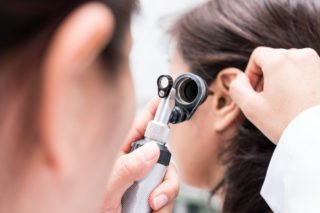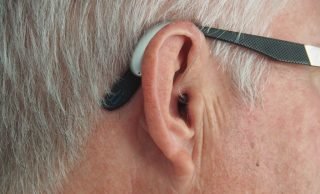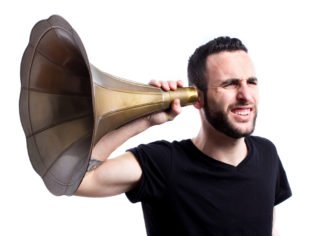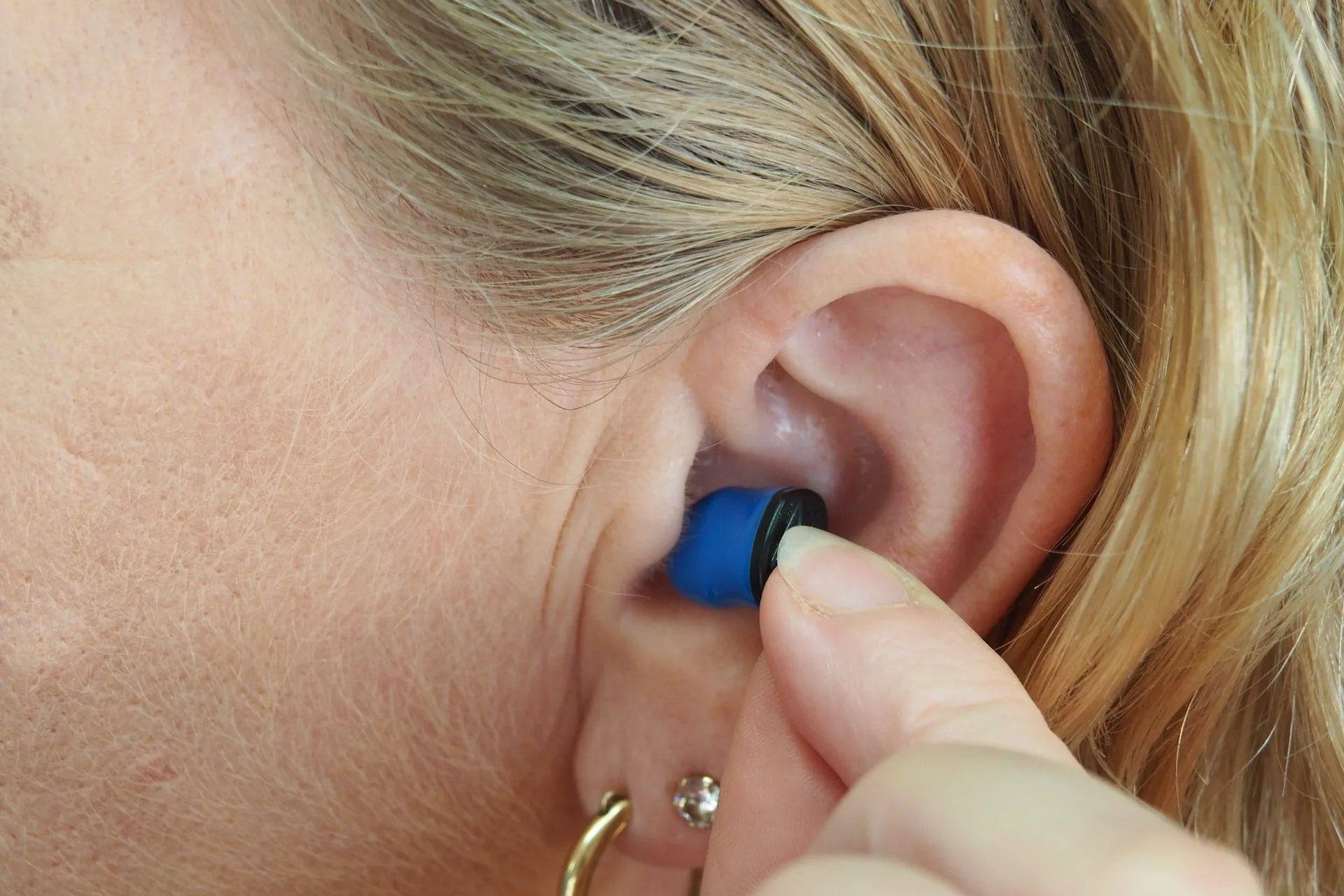The ability to hear and communicate well plays a critical role in our well-being as naturally sociable creatures. However, many of us take our hearing for granted which leads to us not taking enough preventative or corrective measures to protect and preserve our ability to hear as we get older.
“Hearing loss can have greater implications than you realise if left untreated,” says Barry Kaganson, CEO of Auria Senior Living, a leading developer, and manager of senior living communities in South Africa. “Research actually shows that people with impaired hearing can have higher rates of depression, social isolation and cognitive decline and they can be more prone to trips and falls.”
“What most people don’t realise is that hearing loss is not something that can be reversed,” says Kaganson. “Our ability to hear, communicate and participate in conversation is important at all stages of life. The inability to do this can be particularly isolating for older people who don’t always have as much social contact as youngsters, and who want and need to socialise and be part of a community in their senior years,” says Kaganson.
Hearing loss doesn’t just occur in older people. In fact, it can begin quite young in life. The environments we are in and the activities we undertake can play a large role in affecting the quality of our hearing over a lifetime.
What are the symptoms of hearing loss?
It may seem obvious at first that diminished hearing should be easy to identify, but this is not the case. “Research has shown that the majority of people who go to an audiologist with hearing difficulties have been living with some degree of hearing loss for up to ten years,” says Kaganson.

Bangkoker/Shutterstock
The American Speech-Language-Hearing Association bears this out, saying in a 2012 paper: “Unfortunately, only 20% of those individuals who might benefit from treatment actually seek help. Most tend to delay treatment until they cannot communicate even in the best of listening situations. On average, hearing aid users wait over 10 years after their initial diagnosis to be fit with their first set of hearing aids…” (1)
There are early symptoms that one can look out for. According to audiologists, the human ear hears in low, mid-and high-frequency ranges. As we get older or begin to lose hearing, we struggle with high-frequency sounds such as women’s or children’s voices. The inability to clearly hear the ‘s’ or ‘th’ sounds is common. So is struggling to hear clearly in environments where there is a lot of ambient noise. Other early signs to watch out for are tinnitus (ringing in the ears), the need to turn up the volume on the TV or radio in order to hear more clearly, or the growing need to have subtitles on the TV in order to understand what is happening. The tendency to isolate oneself or to move away from group settings is often a giveaway.
Mostly, it is when the people around a person start to notice their inability to hear that hearing loss starts to be identified.
When should one get one’s hearing checked?
A certain amount of hearing loss are likely to occur as one age, and age is still the strongest predictor of hearing loss in adults. Among adults aged 65-74, 25% have a disabling hearing loss, and 50% of adults over the age of 75 have a disabling hearing loss. However, hearing loss can begin at any age. Youngsters who regularly play music at a loud volume or attend loud events like rock concerts are at risk. So is anyone whose hobbies or activities include the use of loud equipment or machinery.
“Men tend to experience hearing loss younger than women. They often start losing hearing around age 40-50, whereas for women it tends to occur more often over the age of 60 and often as late as 80,” says Kaganson.
Just as one is advised to visit the dentist or get one’s eyes checked regularly, audiologists recommend that anyone with normal hearing should have a hearing test once every year to 18 months. This allows any hearing loss to be identified early. Not all cases of hearing loss are severe enough that a person requires a hearing aid, but with regular tests, an audiologist can pick up problems, recommend ways to deal with them, and finally recommend a hearing aid when it becomes necessary.

Photo by Mark Paton on Unsplash
Don’t ignore it!
If you suspect that you or a loved one may be experiencing hearing loss, don’t ignore it. Untreated hearing impairment can have many negative knock-on effects for an older person. Thus, the sooner any of these can be prevented, the better.
What we don’t realise is that although the ear does the mechanical work involved in hearing, most of the work is done by the brain. The brain is where the real listening and interpreting takes place. The purpose of a hearing aid is not just to normalize hearing. Rather, it’s to provide the brain with the continuous stimulation that it needs. This has significant implications for cognitive health. Research carried out by experts at the Cochlear Center for Hearing and Public Health, Johns Hopkins Bloomberg School of Public Health, bears this out. In a study that tracked 639 adults for nearly 12 years, experts found that mild hearing loss doubled dementia risk. Moderate loss tripled the risk, and people with severe hearing impairments were five times more likely to develop dementia.
“If someone has been living with hearing loss for ten years before they see a hearing specialist, they have lost out on ten years of brain stimulation, aside from the other negative effects of impaired hearing,” says Kaganson.

Axel Alvarez/Shutterstock
How can one prevent hearing loss?
The best way to prevent hearing loss is to start early. “Use proper hearing protection and don’t put yourself in situations where there are loud noises on a frequent basis,” says Kaganson. This might mean being a little less ‘cool’ or ‘tough’ but the long-term benefits are clear. Professionally designed hearing protection is available from any audiologist. It is advisable over the small earplugs or other items that one buys off retail shelves.
How can friends and family help?
Friends and family can help those who are struggling with their hearing in various ways. When speaking to someone with impaired hearing, speak at a normal volume but speak very clearly. Articulate your words carefully and speak a little more slowly. Other good advice is to get the person’s attention before you speak to them. Make sure they can see you so that they can read your lips and body language as well.
“Unfortunately, COVID-19 has made this somewhat harder, but some of the hearing professionals we work with are coming up with strategies to combat this, such as giving our residents at San Sereno stickers to wear on their masks to indicate that they need very clear communication,” says Kaganson.
If you suspect that you or a loved one might have hearing loss, the first thing to do is to get your hearing tested. This will help provide a clear picture of the situation and the correct advice. As with most things in life – but particularly with hearing – any amount of prevention is better than cure.
About Auria Senior Living
Auria Senior Living (Auria) develops, owns and manages a portfolio of senior living communities throughout South Africa. Auria is setting a new benchmark in continuing-care community living for the over-70s. It’s providing for the intellectual, emotional, social, and physical needs of its residents, in attractive and well-located environments.
The company’s flagship is San Sereno in Bryanston, and it has just upgraded Melrose Manor in Melrose North. Its latest project, Royal View, is a 122 apartment senior living development on the Royal Johannesburg & Kensington golf course, due to open in 2022, with sales commencing in the 2nd quarter of 2021. Woodside Village is Auria’s first senior living environment in the Western Cape. It is currently being refurbished and is expected to be complete before the end of 2021. Further Auria communities are planned across the country.



![women [longevity live]](https://longevitylive.com/wp-content/uploads/2020/01/photo-of-women-walking-down-the-street-1116984-100x100.jpg)










